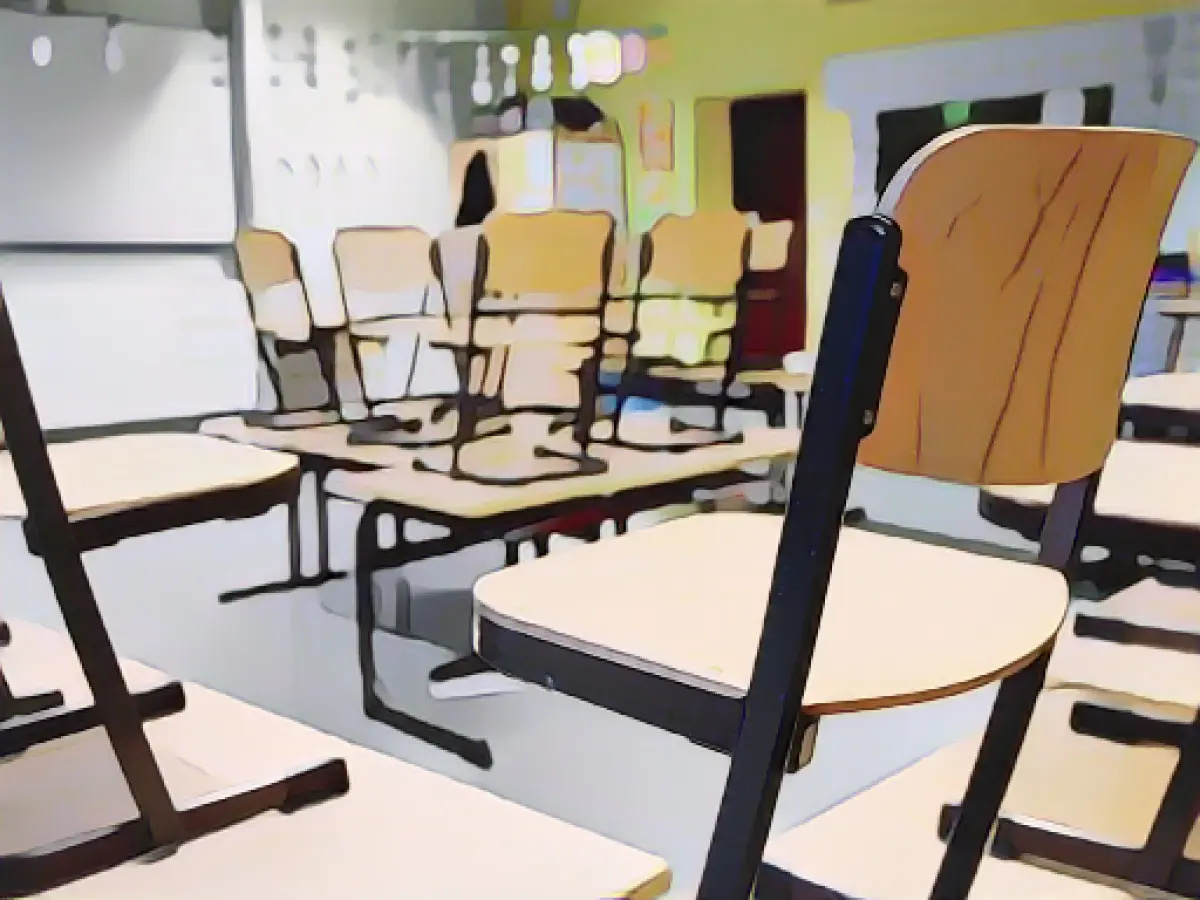Title: Schools Struggle with Rising Islamophobia Amid Middle East Conflict and Terror Attacks
In the wake of recent terrorist activities and the ongoing Middle East conflict, schools across Germany are grappling with a surge in Islamophobic incidents targeted at students and teachers of Muslim or Middle Eastern origin. The Berlin contact point for combating discrimination in schools, headed by Aliyeh Yegane Arani, has seen a notable increase in reports of such incidents, equating the severity of this issue with anti-Semitism.
The enhanced level of uncertainty among teachers regarding how to handle the Middle East conflict and related conflicts, such as the attack on Israel by Hamas, has left many educators lacking in empathy and appropriate pedagogical handling, according to Arani. Some have even overreacted when students express their solidarity through symbols like painting Palestinian flags or wearing Palestinian scarves.
Muslim students, particularly boys, are disproportionately accused of aggression and often face harsher punishments. Arani advocates for intensive training for teachers to equip them with the tools to manage increased diversity and challenging issues such as anti-Semitism, discrimination, and racism.
Recognizing the importance of the situation, Federal President Frank-Walter Steinmeier has invited Yegane Arani and other experts to a roundtable discussion titled "Conflict in the classroom – the war in the Middle East and our schools". Arani, appreciative of Steinmeier's initiative, hopes for a strong statement against the divisive tendencies currently prevalent in Germany.
To combat this issue effectively, educators can employ a multi-faceted approach.
First, incorporating diverse perspectives and histories into the curriculum can help combat misconceptions and foster understanding. Curriculum revisions, workshops, and training sessions led by experts can contribute to a more inclusive educational environment.
Second, creating safe and respectful spaces where students can feel comfortable sharing their identities and experiences is essential. Celebrating cultural diversity, including events like World Hijab Day, can further enrich the classroom environment.
Third, promoting media literacy can help students critically evaluate information on the Middle East conflict and other related topics while fostering open and respectful discussions.
Fourth, offering mental health support for Muslim students and empowering student leaders can help strengthen the community and amplify voices against Islamophobia.
Finally, collaborating with local Muslim organizations and hosting community events can provide additional resources and exchanges, fostering a sense of solidarity and mutual respect.
As educators, we have a responsibility to promote an inclusive and supportive environment for all students, especially in times of heightened tension and uncertainty.








